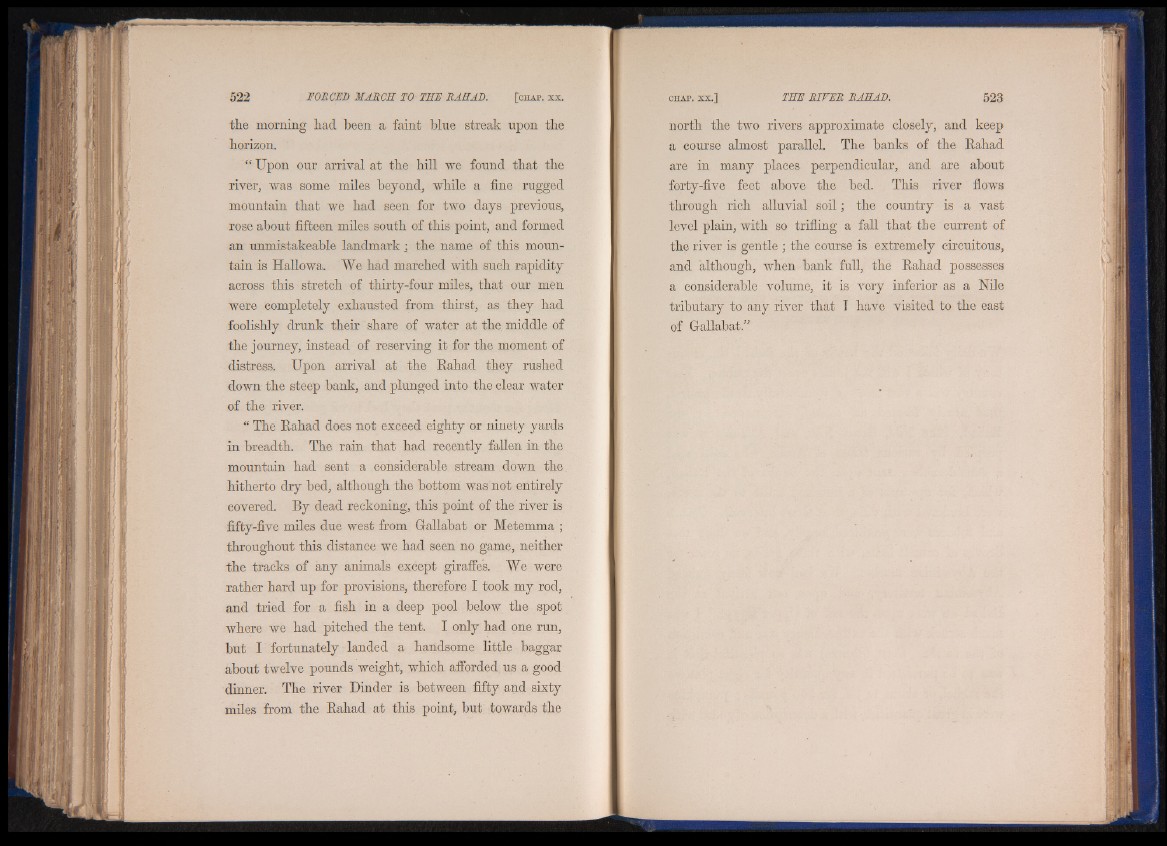
the morning had been a faint blue streak upon the
horizon.
“ Upon our arrival at the hill we found that the
river, was some miles beyond, while a fine rugged
mountain that we had seen for two days previous,
rose about fifteen miles south of this point, and formed
an unmistakeable landmark; the name of this mountain
is Hallowa. We had marched with such rapidity
across this stretch of thirty-four miles, that our men
were completely exhausted from thirst, as they had
foolishly drunk their share of water at the middle of
the journey, instead of reserving it for the moment of
distress. Upon arrival at the Rahad they rushed
down the steep bank, and plunged into the clear water
of the river.
“ The Rahad does not exceed eighty or ninety yards
in breadth. The rain that had recently fallen in the
mountain had sent a considerable stream down the
hitherto dry bed, although the bottom was not entirely
covered. By dead reckoning, this point of the river is
fifty-five miles due west from Gallabat or Metemma ;
throughout this distance we had seen no game, neither
the tracks of any animals except giraffes. We were
rather hard up for provisions, therefore I took my rod,
and tried for a fish in a deep pool below the spot
where we had pitched the tent. I only had one run,
but I fortunately landed a handsome little baggar
about twelve pounds weight, which afforded us a good
dinner. The river Dinder is between fifty and sixty
miles from the Rahad at this point, but towards the
north the two rivers approximate closely, and keep
a course almost parallel. The banks of the Rahad
are in many places perpendicular, and are about
forty-five feet above the bed. This river flows
through rich alluvial soil; the country is a vast
level plain, with so trifling a fall that the current of
the river is gentle ; the course is extremely circuitous,
and although, when bank full, the Rahad possesses
a considerable volume, it is very inferior as a Nile
tributary to any river that T have visited to the east
of Gallabat.”